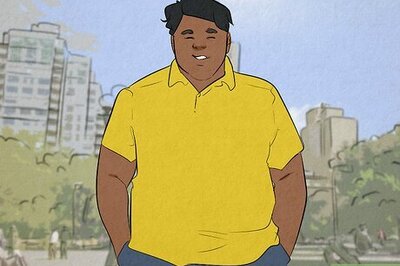
views
For once, doping did not take centre-stage in Indian weightlifting, but the country failed to impress at the world stage in 2011, with London Olympics qualification still uncertain, even though there was unprecedented success to savour in the Commonwealth Championships.
None of the lifters tested positive for banned drugs in international competitions and that gave the Indian Weightlifting Federation considerable relief considering it had to pay a hefty fine to take part in the Commonwealth Games at home in 2010.
The national federation also took stringent action against dope cheats as it took the unprecedented decision in April to suspend 14 coaches for two years for their wards' dope flunk in various national and international competitions. Among the suspended coaches were SS Rao and RK Lanke of Services, who were attached with Sukhen Dey and Anupdeo Toppo, who flunked dope tests during the Continental Club Grand Prix in Malaysia in December 2010.
With a reduction in doping cases, partly due to increased vigilance by the National Anti-Doping Agency, the performance of lifters also dipped and they put up a disappointing show at the November 5-13 World Championships.
India failed to get a qualification slot for London Olympic Games by finishing outside the stipulated placings in the team championships. The Indian men finished 38th while the women's team came 27th in the rankings table, drawn up after taking into consideration the points of the teams. The top 24 teams among men and 21 teams among women earned quota places for the London Games.
Indian lifters now have a bleak chance of qualifying for the London Olympics and the country can hope to get a maximum of one entry each in the men's and women's events through the Asian Championships if they finish among the top seven among men and the top six among women.
Minnows in World Championship-level competitions, India remained among the table-toppers in Commonwealth events. Indian lifters exceeded all expectations as they won a whopping 110 medals, including 53 gold, in South Africa in October.
In the Asian Championships held in April in China, India won eight bronze medals, with Commonwealth Games gold medalist Kutulu Ravi Kumar and Matsa Santoshi bagging three bronze each in the men's 69kg and women's 53kg categories. Sanjita Chanu won two bronze in the women's 48kg category.
Doping, however, continued in the domestic competitions and the national federation had to clamp down with bans being handed to Haryana, Maharashtra and Railways.
The IWLF suspended Haryana for one year after three of their lifters tested positive for banned substances at the National Youth and Junior Championships held in Jagadhri, Haryana, from January 2 to 9. The lifters were Sunny Arya, Gurmail Singh and Surender. Praveen and Inderpal Singh, the coaches of the lifters, were also suspended for two years, while the state association was fined Rs 50,000.
The IWLF also suspended Railways Sports Promotion Board and Maharashtra for one year each after lifters belonging to these units tested positive for prohibited substances.
Eight RSPB lifters tested positive during the Inter-Railways Championship in Kolkata from December 1 to 3, while three Maharashtra lifters returned positive in the National Youth and Junior Championships.
Towards the close of the year, Sydney Olympics bronze medalist Karnam Malleswari resigned as vice-president of the IWLF, accusing the officials of being responsible for the poor results of the lifters in international events. Malleswari said she was upset with the way the IWLF was working and felt that the federation was being run by people who did not know anything about the sport.
Malleswari's one-time national team colleague and multiple-medal winner at international events, Kunjarani Devi, who went to the World Championships in Paris as coach of the women's junior team, threw her weight behind the federation, leading to squabbles between the country's two most decorated lifters.




















Comments
0 comment